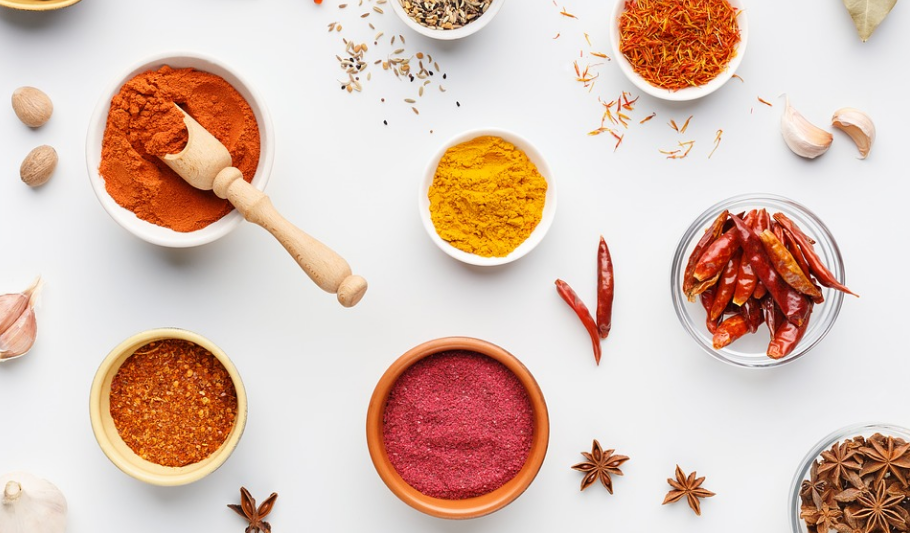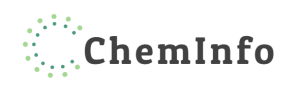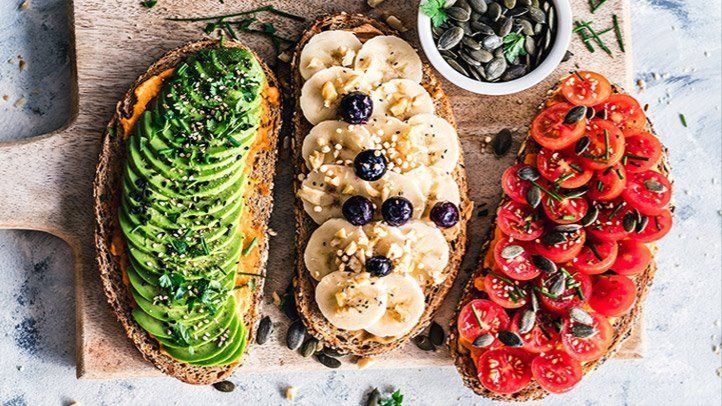Faced with economic and global instability, consumers are actively trying to manage their stress. Herbal supplements might be the solution they are seeking.
Anxiety disorder prevalence is growing fastest among 18-25 year-olds.
Daily life is filled with numerous stressors, impacting both quality of life and relationships.
Economic uncertainty is a significant stressor. According to a survey by the American Psychological Association (APA), 83% of US adults see inflation as a stressor, with 57% stating that the ability to afford various expenses is their main economic stressor. In the same survey, 27% of adults claimed that stress hinders their normal life, with 46% of them being under 35 years old. A staggering 76% even stated that stress has affected their health, leading to headaches (38%), fatigue (35%), tension or anxiety (34%), and/or feeling depressed or sad (33%).
A 2020 study found that anxiety disorder rates have been increasing since 2008, especially among young people. Using data from the National Survey on Drug Use and Health (NSDUH), the study reported an increase in the prevalence of anxiety disorders from 5.12% in 2008 to 6.68% in 2018. Among respondents aged 18 to 25, the prevalence of anxiety disorders increased from 7.97% to 14.66%, a faster growth rate compared to respondents aged 26-34 and 35-49.
Changing lifestyle and dietary habits can improve mental health.
While severe mental health issues should be addressed by healthcare professionals, many people believe that changing lifestyle and dietary habits can positively impact their mental health. According to a survey by the American Psychiatric Association, 80% of adults aged 18 to 34 claim to have a high understanding of the relationship between diet and mental health. When asked about changing dietary habits, 66% reported drinking more water, 50% ate more fruits, 53% ate more vegetables, 36% avoided processed foods, 28% reduced alcohol consumption, and 25% ate more whole grains.
Dietary supplements can be a way to cope with stress in our lives. According to a recent survey of 3,192 US adults by the Council for Responsible Nutrition (CRN), 74% of consumers reported taking dietary supplements, with 92% believing that taking them is crucial for maintaining health.
What herbal supplements can alleviate stress?
In addressing stress, plants offer diverse solutions, with market research indicating a growing consumer interest in herbal supplements. According to HerbalGram’s Herbal Market Report, citing data from NBJ, retail sales of herbal supplements reached approximately $12.35 billion in 2021, a 9.7% increase from the previous year.

Ashwagandha
According to the Herbal Market Report, the herb with the largest sales growth in mainstream channels that year (increasing by 225.9%) was Ashwagandha (Withania somnifera). Although sales slowed in the following years, this surge indicated renewed attention to this ingredient. Classified as an adaptogen, Ashwagandha is believed to support the body’s ability to adapt to stress.
Research has found that in both animal and human trials, Ashwagandha significantly reduces biomarkers and symptoms of stress. This herb may alleviate stress by reducing cortisol and corticosterone levels, the primary stress hormones in humans and rodents, respectively, elevated during stress and play. Ashwagandha may also mitigate stress by regulating the immune system. Animal models have shown that it may stimulate the immune system, reduce inflammation, and lower immune and inflammatory biomarkers increased under stress.
Bacopa Monnieri
Another promising adaptogenic herb that may provide support for stress and mood is Bacopa monnieri. While this herb is often associated with cognitive health, growing evidence suggests its potential benefits for stress and mood. According to SPINS data, in the 52 weeks before October 30, 2022, Bacopa monnieri ranked among the top-selling herbs in the cognitive health category, with sales increasing by 20% in natural channels and 10.6% in mainstream channels compared to the previous year. Preclinical studies suggest that Bacopa monnieri may have neuroprotective effects. For example, research on rodents exposed to chronic and unpredictable stress conditions showed an association between this herb and the upregulation of brain-derived neurotrophic factor (BDNF) and the activation of the TrkB signaling pathway, leading to neurogenesis and neuroprotection.
A recent study investigating the effects of a Bacopa monnieri extract on human subjects found that, according to the 36-Item Short Form Health Survey, adults reporting poor sleep quality experienced improved mood health after taking the extract. While more research is needed to understand the herb’s impact on stress, consumers are already supporting brain health by consuming Bacopa monnieri.
Holy Basil
According to preclinical data and its traditional use in medicine, Holy Basil (also known as Basil) has the potential to support a wide range of health outcomes, including metabolic health, cardiovascular health, and neurocognition. As an adaptogen, these benefits are likely associated with the herb’s inhibition of inflammatory pathways. A double-blind, placebo-controlled study assessed the herb’s impact on stress-related symptoms over six weeks. The results showed a significant reduction in stress-related symptoms such as memory decline and susceptibility to fatigue among subjects taking a proprietary Holy Basil extract. In the group taking the extract, overall symptom scores also significantly decreased, with a 39% higher improvement in general stress compared to the placebo group.
A more recent human study found that different Holy Basil extracts significantly reduced perceived stress scale scores by 37%, Athens Insomnia Scale scores by 48%, and salivary cortisol levels and salivary α-amylase (sAA) significantly decreased after eight weeks of supplementation. According to researchers, the reduction in sAA and salivary cortisol may indicate that Holy Basil has a buffering effect on the acute stress response of the sympathetic-adrenal medullary system (SAM) and the hypothalamic-pituitary-adrenal (HPA) axis.
Rhodiola Rosea
As an adaptogenic herb, Rhodiola rosea has gained attention in the sports nutrition category for its potential to support and recover physical endurance. A randomized, double-blind, placebo-controlled, parallel-group study found that supplementing with a proprietary Rhodiola rosea extract helped improve symptoms of stress-related fatigue. In this study, 60 subjects aged 20 to 55 were given the extract or a placebo daily for 28 days. The results showed that subjects taking the Rhodiola rosea extract had significant improvements in fatigue based on the Pines’ Burnout Scale and attention based on the Conners’ Computerized Continuous Performance Test II index compared to the placebo group. The subjects taking the extract also did not show changes in heart rate variability in response to waking stress, which is essential, as decreased heart rate variability is a sign of stress being experienced. For example, when the autonomic nervous system activates the fight-or-flight response, it increases heart rate and decreases heart rate variability.
A more recent study in subjects with fatigue symptoms also showed similar results. In this study, 118 subjects with similar stress burdens, such as caring for disabled or elderly family members with dementia, took Rhodiola rosea extract daily for 12 weeks. The results showed significant improvements in subjective stress symptoms on the Numeric Analog Scale (NAS), including anxiety, fatigue, attention impairment, irritability, etc., with the most significant improvements occurring in the first week, particularly in fatigue, attention impairment, and somatic symptoms.
One potential mechanism by which this herb supports stress relief is by activating heat shock protein 70, a stress-induced protein that inhibits the expression of the NO synthase II gene to reduce nitric oxide (NO) production. It also interacts with glucocorticoid receptors, affecting circulating cortisol levels. Researchers explain that preventing stress-induced NO increase and the associated decrease in ATP production can enhance performance and endurance. Additionally, Rhodiola rosea may also interact with the HPA axis, limiting glucocorticoid release.
Saffron
Another promising stress support ingredient is saffron extract, derived from the dried stigmas of Crocus sativus L., a perennial herb in the iris family. A recent randomized, placebo-controlled, double-blind, parallel-group designed study found that a proprietary saffron extract could reduce subclinical depressive symptoms and increase resistance to stress. In this study, 56 healthy subjects aged 18 to 54 were given saffron extract or a placebo for eight weeks. Researchers used a series of questionnaires to assess the extract’s impact on subjective anxiety, stress, and depressive feelings, as well as acute responses to laboratory psychosocial stress.
The results showed that subjects taking saffron extract had a significant reduction in the Profile of Mood States-2 (POMS) depression subscale but no significant difference in overall mood disturbance based on POMS total mood disturbance scores. They also saw a significant improvement in the social relationships domain of the World Health Organization Quality of Life Assessment. Compared to the placebo group, subjects taking saffron extract had higher social relationship scores on day 56 after supplementation. Regarding the acute stress response, subjects taking saffron extract showed no change in heart rate variability, which is crucial because the placebo group experienced decreased heart rate variability, a sign of stress being experienced. For example, increased heart rate and decreased heart rate variability occur when the autonomic nervous system activates the fight-or-flight response.
Researchers suggest that saffron may act on neurotransmitter systems similar to antidepressant medications, and its impact on heart rate variability in stress response may be attributed to the activity of the parasympathetic nervous system, a part of the autonomic nervous system. Researchers also explain that the extract may act on the GABAergic system.
In conclusion, herbal supplements, including Ashwagandha, Bacopa monnieri, Holy Basil, Rhodiola rosea, and Saffron, offer potential support for stress relief based on various preclinical and clinical studies. However, it’s essential to note that individual responses may vary, and consulting with a healthcare professional is advisable before incorporating any new supplements into one’s routine.
References
1.American Psychological Association. Stress in America 2022: Concerned for the future, beset by inflation. October 2022. Accessed October 9, 2023. https://www.apa.org/news/press/releases/stress/2022/concerned-future-inflation
2.Goodwin, R. D.; Weinberger, A. H.; Kim, J. H.; Wu, M.; Galea, S. Trends in anxiety among adults in the United States, 2008-2018: rapid increases among young adults. J Psychiatr Res. 2020, 130: 441-446. DOI: 10.1016/j.jpsychires.2020.08.014
3.American Psychiatric Association. Four in five Americans would change their diets to improve mental health, but they rate other life factors as more impactful. April 11, 2023. Accessed October 10, 2023. https://www.psychiatry.org/News-room/News-Releases/APA-Poll-Diet-and-Mental-Health
4.American Psychiatric Association. Americans anticipate higher stress at the start of 2023 and grade their mental health worse. December 21, 2022. Accessed October 10, 2023. https://www.psychiatry.org/news-room/news-releases/americans-anticipate-higher-stress-at-the-start-of
5.Krawiec, S. Latest CRN consumer survey finds that three quarters of Americans take dietary supplements. Nutritional Outlook. October 6, 2023. Accessed October 10, 2023. https://www.nutritionaloutlook.com/view/latest-crn-consumer-survey-finds-that-three-quarters-of-americans-take-dietary-supplements
6.Smith, T.; Resetar, H.; Morton, C. U.S. sales of herbal supplements increase by 9.7% in 2021. HerbalGram. 2022, 136: 42-69. https://www.herbalgram.org/resources/herbalgram/issues/136/table-of-contents/hg136-feat-hmr/
7.Grebow, J. Ashwagandha’s sales growth slows down: 2023 Ingredient trends for food, drinks, dietary supplements, and natural products. Nutritional Outlook. January 23, 2023. Accessed October 11, 2023. https://www.nutritionaloutlook.com/view/ashwagandha-s-sales-growth-slows-down-2023-ingredient-trends-for-food-drinks-dietary-supplements-and-natural-products
8.Speers, A. B.; Cabey, K. A.; Soumyanath, A.; Wright, K. M. Effects of Withania somnifera (ashwagandha) on stress and the stress-related neuropsychiatric disorders anxiety, depression, and insomnia. Curr Neuropharmacol. 2021, 19 (9): 1468-1495. DOI: 10.2174/1570159X19666210712151556
9.Brimson, J. M.; Brimson, S.; Prasanth, M. I.; Thitilertdecha, P.; Malar, D. S.; Tencomnao, T. The effectiveness of Bacopa monnieri (Linn.) Wettst. as a nootropic, neuroprotective, or antidepressant supplement: analysis of the available clinical data. Sci Rep. 2021, 11: 596. DOI: 10.1038/s41598-020-80045-2
10.Kumar, S.; Mondal, A. C. Neuroprotective, neurotrophic and anti-oxidative role of Bacopa monnieri on CUS induced model of depression in rat. Neurochem Res. 2016, 41 (11): 3083-3094. DOI: 10.1007/s11064-016-2029-3
11.Lopresti, A. L.; Smith, S. J.; Ali, S.; Metse, A. P.; Kalns, J.; Drummond, P. D. Effects of a Bacopa monnieri extract (Bacognize) on stress, fatigue, quality of life and sleep in adults with self-reported poor sleep: a randomised, double-blind, placebo-controlled study. J Funct Foods. 2021, 85. DOI: 10.1016/j.jff.2021.104671
12.Jamshidi, N.; Cohen, M. M. The clinical efficacy and safety of tulsi in humans: a systematic review of the literature. Evid Based Complement Alternat Med.Published online March 16, 2017. DOI: 10.1155/2017/9217567
13.Saxena, R. C.; Signh, R.; Kumar, P.; Megi, M. P. S.; Saxena, V. S.; Geetharani, P.; Allan, J. J.; Venkateshwarlu, K. Efficacy of an extract of Ocimum tenuiflorum (OciBest) in the management of general stress: a double-blind, placebo-controlled study. Evid Based Complement Alternat Med. 2012: 894509. DOI: 10.1155/2012/894509
14.Lopresti, A. L.; Smith, S. J.; Metse, A. P.; Drummond, P. D. A randomized, double-blind, placebo-controlled trial investigating the effects of an Ocimum tenuiflorum (holy basil) extract (HolixerTM) on stress, mood, and sleep in adults experiencing stress. Front Nutr. Published online September 2, 2022. DOI: 10.3389/fnut.2022.965130
15.Olsson, E. M.; Schéele, B.; Panossian, A. G. A randomised, double-blind, placebo-controlled, parallel-group study of the standardized extract shr-5 of the roots of Rhodiola rosea in the treatment of subjects with stress-related fatigue. Planta Med. 2009, 75 (2): 105-112. DOI: 10.1055/s-0028-1088346
16.Kasper, S.; Dienel, A. Multicenter, open-label, exploratory clinical trial with Rhodiola rosea extract in patients suffering from burnout symptoms. Neuropyschiatr Dis Treat. 2017, 13: 889-898. DOI: 10.2147/NDT.S120113
17.Grech-Baran, M.; Sykłowska-Baranek, K.; Pietrosiuk, A. Approaches of Rhodiola kirilowii and Rhodiola rosea field cultivation in Poland and their potential health benefits. Ann Agric Environ Med. 2015, 22 (2): 281-285. DOI: 10.5604/12321966.1152081
18.Panossian, A.; Wikman, G.; Sarris, J. Rosenroot (Rhodiola rosea): traditional use, chemical composition, pharmacology and clinical efficacy. Phytomedicine. 2010, 17 (7): 481-493. DOI: 10.1016/j.phymed.2010.02.002
19.Jackson, P. A.; Forster, J.; Khan, J.; et al. Effects of saffron extract supplementation on mood, well-being, and response to a psychosocial stressor in healthy adults: a randomized, double-blind, parallel group, clinical trial. Front Nutri. 2020, 7: 606124. DOI: 10.3389/fnut.2020.606124
20.Brennan, D. What is heart rate variability? WebMD. April 12, 2021. Accessed October 20, 2023. https://www.webmd.com/heart/what-is-heart-rate-variability



